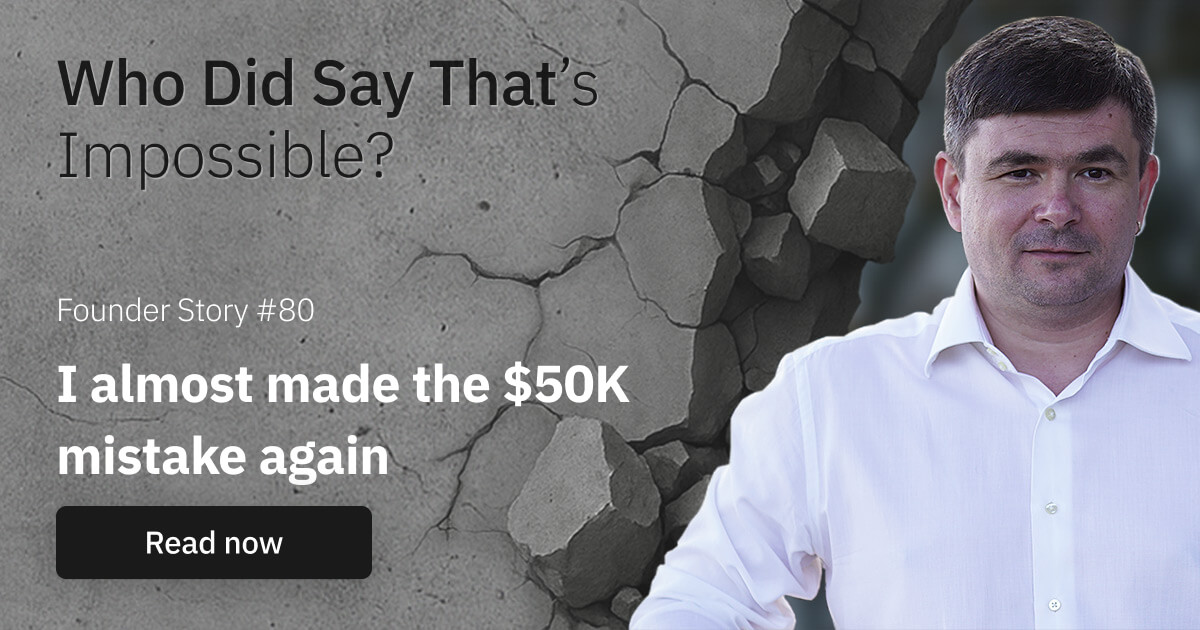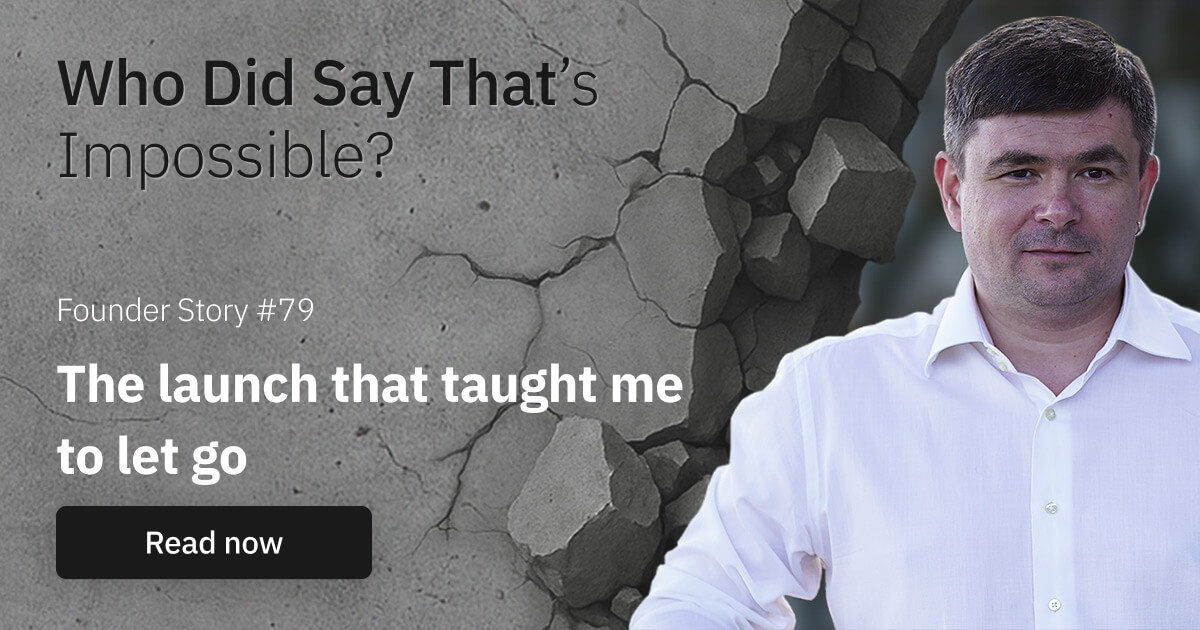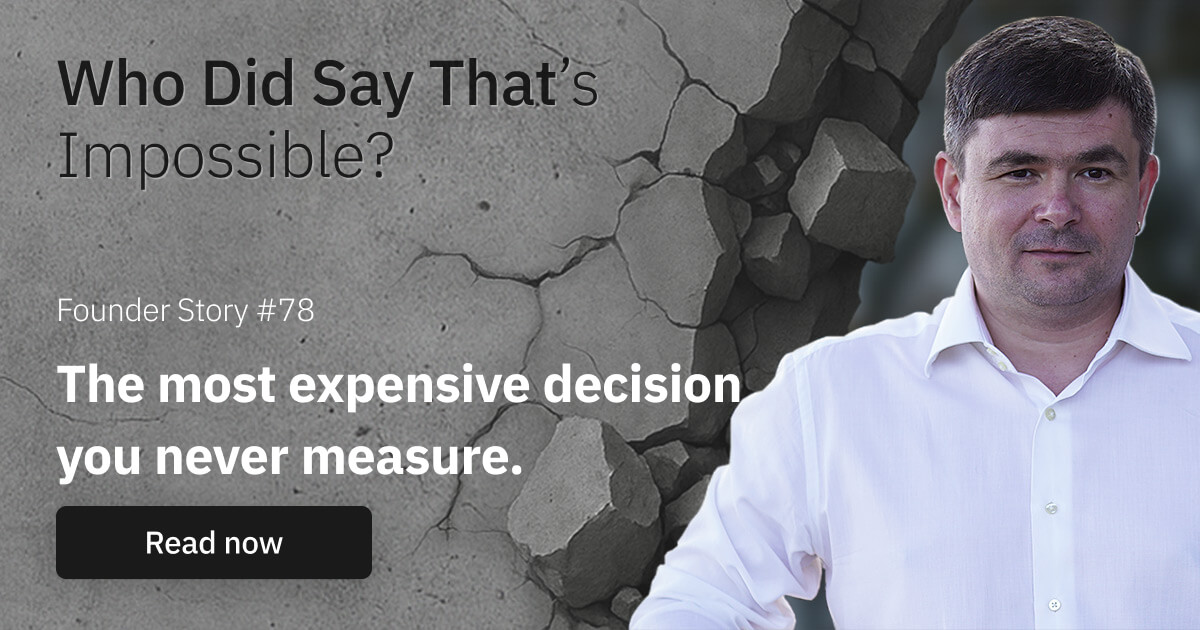You don’t need a heroic team
Or minute of engineered trust
I never really had a hobby.
My business was my hobby. And for years, it felt like a blessing.
I grew up dreaming of computers. The first thing I ever bought with my own money, in debt, was a PC. I taught myself to code. Went to university for computer science. And when I started my own agency, it wasn’t some master plan to build a business. It was just another way to keep doing what I loved.
Especially when I discovered systems. That was the real fun. The intellectual playground. The engineering puzzle.
But over time, that playground became a trap.
Because when your business is your only source of joy, it becomes the only thing you feed.
And when you feed something endlessly, it grows.
And it starts to consume you.
Hustle wasn’t the problem. It was the expectation.
I still loved building systems.
But I stopped loving being inside them.
I dreamed of mountains. Of real hobbies. Of free weekends.
Of learning practical shooting, something I’d always wanted.
Well... the dream stayed a dream.
The team grew. The list of tasks never stopped and I was inside everything, all the time.
So I did what I thought was right — I doubled down on effort.
- Stayed late.
- Put in more hours.
- Solved every crisis.
- Showed the team what “hard work” looked like.
I thought they’d follow. They didn’t.
The programmers, the designers, the managers, they didn’t want to be martyrs.
They wanted to do good work. In a sane environment. With clear boundaries.
At first, I was angry. Then I realized they weren’t wrong.
People don’t fail because they’re lazy.
They fail because no one gave them structure.
The architecture of autonomy
That realization hit me hard.
I’d built a business that only worked when I was there.
That depended on me for every big decision, every fire, every turning point.
And I was burning out. Quietly, but fast.
So I stopped trying to lead by example.
And started leading by architecture.
I mapped the actual connections between teams.
Clarified responsibilities.
Aligned personal goals with business outcomes.
And, most importantly, I let go.
For A-players, I created space:
- budgets,
- real authority,
- decision trees.
For everyone else, I gave clarity:
- where they stood,
- how they could grow,
- and what was expected.
And for me, I got space back.
For the first time in years, I wasn’t afraid to leave my laptop.
The P&L that changed everything
But the real shift came from a book.
The Great Game of Business opened my eyes.
It explained how to make people care by letting them see.
We started showing the team real numbers.
Revenue. Profit. Margins. Bonuses.
Suddenly, meetings weren’t about “how late are we staying”, they were about “how do we improve our numbers?”
People stopped waiting for instructions.
They started thinking like owners.
That’s when I finally had time for the things I’d put on hold.
I started shooting. I hiked. I felt alive again, outside of Slack, outside of crisis mode.
Not because the business shrank. But because the system grew.
You don’t need harder workers. You need smarter scaffolding.
If your team depends on you to push, you’ve already lost.
Because your freedom is just one missed deadline away from collapse.
And that dream you keep postponing?
It’ll stay postponed forever.
Until you build a system that works without you.
That’s what structure is.
It’s not “management.” It’s design.
And once you get it right, you’re free to breathe.
Disclaimer.
Every business has its nuances, and every founder has their unique context and resources. Whether or not my advice applies depends on your situation, experience, and needs. But one thing is universal—use your brain.
Think about how to apply the advice in your context before acting.
Your way.
- Eugene
Join the “most offbeat” Businessletter on entrepreneurship.

Hi, I’m Eugene.
Over the past 20+ years, I’ve grown an international agency from one-person freelance to a multimillion-dollar business. I’ve led teams, scaled systems, burned out, rebuilt, and learned (the hard way) what it really takes to run a business that doesn’t consume your life.
I help them make sense of complexity, design simple systems, and create the kind of business they actually want to run.
More Stories
Founder Stories

I almost made the $50K mistake again
Or minute of catching myself repeating a dangerous pattern

The launch that taught me to let go
Or minute of realizing you can know the answer and still ignore it


